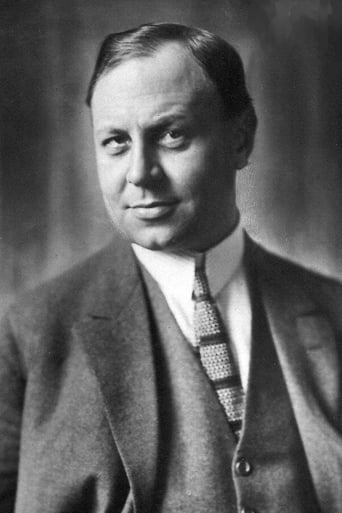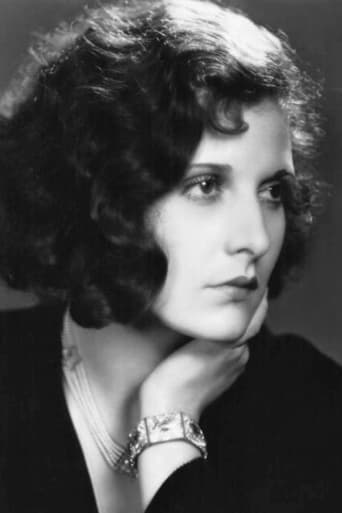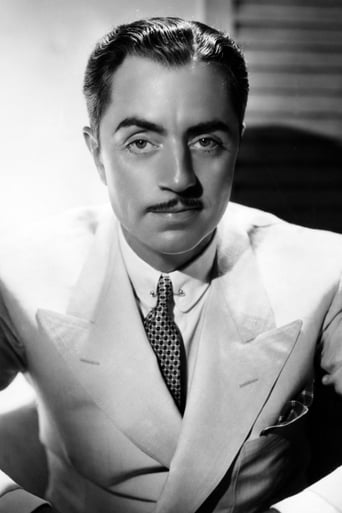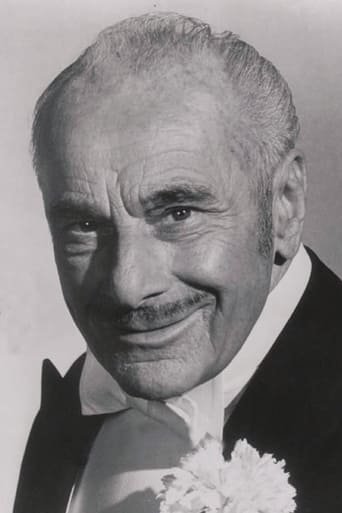Hottoceame
The Age of Commercialism
ChicRawIdol
A brilliant film that helped define a genre
Curapedi
I cannot think of one single thing that I would change about this film. The acting is incomparable, the directing deft, and the writing poignantly brilliant.
Phillipa
Strong acting helps the film overcome an uncertain premise and create characters that hold our attention absolutely.
gavin6942
A former Imperial Russian general and cousin of the Czar ends up in Hollywood as an extra in a movie directed by a former revolutionary.This is a great film, due largely to Emil Jannings. With all due respect to William Powell, Jannings is a powerful screen presence and deserved his Oscar. It is truly a shame that his career ended up going the way it did, because he should be celebrated, but instead seems to be forgotten by anyone other than fans of the silent film / German expressionism.I love that this story has some basis in fact. I have no idea how close it follows the truth, but the very idea that such a story exists is amazing. It makes sense, i suppose, that any number of Russians would become refugees after 1917 or so. It would make even more sense that they end up in Hollywood, which was growing fast thanks to immigrants at he time.
seanpayne
A former Imperial Russian general and cousin of the Czar ends up in Hollywood as an extra in a movie directed by a former revolutionary.This early film by Joseph Von Sternberg is fascinating for several reasons, most of which unfortunately are not to do with its dramatic quality.It's a time-capsule of a very specific point in the twentieth century and speaks with the voice of a whole class who felt a little uneasy at recent events, namely, the long reverberations of the Bolshevik revolution in Russia and the political repercussions throughout Europe. It's worth keeping in mind that many of the major figures in the early American film industry were themselves children of mother Russia and many actors and technical crew washed up in Hollywood after making themselves scarce in their home countries currently undergoing revolutionary upheaval. This was so well-known to the public that the film itself could depict a commander of Russian military forces reduced to the status of a movie extra without stretching credulity.The scenes of revolution in Russia are fascinating to watch as a right wing answer to the avant garde depictions of the same events, most famously in Eisenstein's 'October'. Compared to the kinetic rhythm of that film and others like his 'Battleship Potemkin', the scenes of crowd violence in 'The Last Command' are pretty tame and melodramatic. In fact the revolting masses scowl and screech like apes in heat. In several scenes they literally drool with blood-lust. The worst impersonations of what people think of as 'silent movie acting' are confirmed, complete with eye-rolling and tearing of hair.That old joke about 'the masses are revolting' seems to be the guiding principle here. Even the Hollywood extras on the movie studio lot are animals, pushing and shoving, mocking and jeering the sad tragic figure of Emil Jannings, the humiliated former 'imperial highness'. The film itself assumes the moral superiority of he ruling classes at every turn, whether they be Czarist military authorities or studio executives. Even the preening, cynical Jannings in the flashback scenes of pre-revolutionary Russia is affirmed to be at heart a patriot, one who 'loves Russia', in the words of the former revolutionary heroine, whose personality transitions are so abrupt it seems she is suffering from some advanced psychiatric condition.One thing that seems completely contemporary about the film, though. The camera almost caresses Jannings at every opportunity and he is in virtually every scene. It was obviously a calculated star vehicle for him, a vanity project, just as much as any recent Adam Sandler movie. I was not the least surprised that Jannings won the very first acting Oscar for his performance in this film, not because of its quality - he was better in Murnau's 'Last Laugh' to name just one previous role - but because it was in every sense a flagship picture, furnished with all the resources of the major studio that financed it. The very same thing happens today.
howardeisman
Sure the absence of spoken dialogue, flimsy sets and obvious miniatures mark this movie as an antique, but it does grab you. It is easy to disregard the antique technical aspects of the film, but the psychology of the protagonists are equally out of date. Did people in 1928 swallow the unlikely behavior of the protagonists as reflecting real life or did they see it as necessary plot components of a fantasy. I suspect the latter.William Powell was most naturalistic in his acting. He played a calculating, humorless, dictatorial movie director. The antithesis of Nick Charles. Jannings got a chance to strut his famous histrionics, and he puts on quite a show. Brent could be a smoldering Garbo one minute and a Joan Crawford flapper the next. Her behavior was designed for script purposes and did not simulate any fully fleshed out character.Director Joseph von Sternberg (nee Jonas Sternberg)and Jannings reached their career heights with The Blue Angel two years later. Von Sternberg could really stretch out a quiet, actionless scene and fill it with tension. He was successful in Hollywood for a while and then his career crashed. Jannings became a Nazi in Germany and slid into obscurity and early death after WWII.The movie can be gripping. It is well done, but the characters are acting out a movie style fantasy that is not longer palatable. I couldn't suspend my disbelief. Hey, times change.
LordBlacklist
The Last Command was one of the best movies I've ever seen. Chronicling the rise and fall of a Russian dictator with so much power, emotion, and humanity that it is very easy to forget this is a silent picture. Emil Jannings as General Dolgurucki shows such mad obsession for power over everyone and everything, only to be betrayed by his entire country and left a sad withering shell of the man he once was. The scene where Jannings gives his "last command" was amazing in his portrayal of the sad old man reliving his glory days. The flaring of his eyes, the strength of his stature, the passion of his words are a fitting end to a great man's life. It make sense that the general would die on a movie set since it was the only plausible place left that he could die an honorable death on the battle field. Perhaps The Last Command is a portrait of the first method actor, but that would sell it short because it is about so much more than that. Every character seems to have a few tricks up their respective sleeves, or skirts. One of the running themes is that people are capable of anything, and it shows to a great extent. The general goes through such a physical change from stately dictator to grubby extra that it is hard to believe that each end of the spectrum ever had anything to do with the other.




